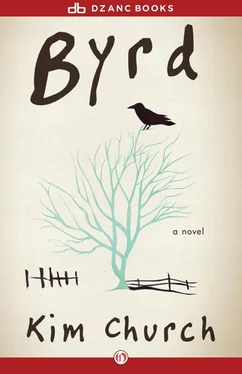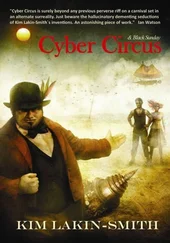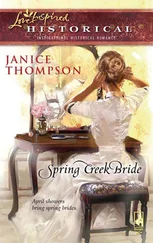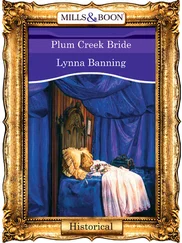“Anyone else in the store at the time?” the officer asks. He is thirty-ish, attractive in a stiff-blue-cap way. He takes careful notes.
Vivian shakes her head.
“Crazy motherfucker,” Peale says, rolling his eyes. His pupils are dilated. His reading glasses are on the tray beside his bed, spotted with blood. “I should have known.”
“How?” Vivian says. She explains to the officer, “It’s a used bookstore. Half our customers could pass for thieves.”
“Ayn fucking Rand,” Peale says.
When Addie shows up in the little curtained cubicle, Peale gets even more agitated. “I was selling!” he yells. “I was having my best day ever!” His eyes are wild. The wound on his throat looks like a zipper.
“I know, I know,” Addie says, hushing him. She glares at the police officer and Vivian as if she can’t decide which of them to blame. “Unbelievable,” she says. “In broad daylight.”
“Happens all the time, ma’am,” the officer says. His face is pink. Vivian wonders if he is being chivalrous, trying to cover for her. Does he think she needs to be covered for?
“We have an alarm,” Addie says. “We work in twos. What else can we do?”
“Have you considered installing a surveillance camera?”
“Like a convenience store,” Peale says. “And we can start selling beef jerky and plastic roses.” He narrows his eyes. “Crazy little Ayn Rand motherfucker.”
That night with William, Addie is quiet. She is trying not to think about everything she almost lost, could still lose.
She gives him his grab-box. It has a trowel with a broken handle, garden gloves, broken binoculars, a half-empty bag of millet, a shoe horn, and two boxes of bobby pins. Nothing memorable like the terry cloth slippers John Dunn modeled for her. But she will remember tonight anyway — William in her apartment, happily opening his box of stuff, thanking her, putting his arm around her, telling her not to worry, everything’s fine, everyone’s going to be fine.
Promising not to leave her.
Not leaving.
Dear Byrd ,
I grew up believing that nobody can take care of anybody. I was wrong. People take care of each other all the time. Just maybe not the people you expect, or in the way you expect .
What Comes, Finally, Part One
Call him, the lawyer said. That was weeks ago. Addie said thank you and hung up, and paid the lawyer’s bill when it came, and waited, certain that sooner or later, when he was ready, Roland would call her. Always let the boy call you , her mother used to say, advice Addie never followed until now.
She’s still waiting. She has rehearsed their conversation in her mind a thousand times. Sometimes when she’s alone she speaks the parts aloud.
I’m sorry, baby . The way Roland begins every conversation.
You? Sorry for what?
Sorry you’ve had to carry this secret around for so long.
That’s my fault .
Do you know anything about him? Where he ended up?
No. I have a sense he’s close by — not based on anything, just a feeling. Maybe we’ve even seen each other. It happens all the time, you know .
What does he look like? When he was born, I mean. Did he look like me?
Yeah, but smaller, and his hair was all wet and flat against his head. Not big and fluffy like yours .
They will laugh, the two of them finally in this together.
What comes, finally, is a postcard — the first piece of mail he has ever sent her. A glossy picture postcard of the neon arch over Reno, Nevada, “Biggest Little City in the World.” On the back, in careful blue ballpoint, is her address with a blue ballpoint box around it, and to the left of it, this message:
Addie ,
I don’t blame you .
Roland
That’s all. In two months he has come up with a single four-word sentence. And Addie has no idea what it means.
I don’t blame you for having my child even after you told me you weren’t?
I don’t blame you for not keeping him?
I don’t blame you for not telling me?
She studies his handwriting for a clue, any sign of feeling. It’s art, his handwriting. She has never known another man with such beautiful cursive. It hasn’t changed since he signed her yearbook in 1974, or wrote on her Gladys Knight album cover in 1989. Lots of love and luck, Roland Rhodes . She has them still; she will keep them always — the yearbook, the album cover, now this cheap, shiny postcard.
They all mean the same thing.
Good-bye.
What Comes, Finally, Part Two
A week later, more mail — a letter this time. The envelope is from the Department of Social Services, but the letter inside is not from Janet. Addie recognizes the handwriting: neat, forward-slanted, school-teacherish. As before, there is no greeting. Byrd’s mother doesn’t know what to call her.
I’m sorry to hear about your father’s passing .
Our son, I am pleased to report, is healthy. No asthma. He even plays sports — baseball and soccer. He doesn’t excel but he tries hard, which impresses me more than if he simply stuck to the things he’s good at. Science and math and music .
He knows he is adopted. This is still fresh news. We told him on his birthday. What a day, can you imagine? A bicycle with gears, a new baseball glove, some books, and oh, by the way, you’re not who you thought you were .
Ten seemed the right age. Of course the books all say that’s much too late. They say you should start talking about it right away. But he’s an unusual child. He has always liked structure — organizes his toys (to explain his system would take another, much longer letter), eats his meals off divider plates. We were afraid to unsettle him .
He looked at us like we were reading him a math problem. He asked the questions we were expecting: who were his real parents, why didn’t they keep him .
We said what we’d planned. His parents loved him, we said, and wanted him to have a better life than they could give him .
Now he seems to be trying to figure out how he’s supposed to feel. He has always believed there’s a right way to do things, to think, to feel, and that if he pays attention, he can figure out what it is. Lately I’ve noticed him looking differently at women my age, women who are old enough. He studies them in church, in the library, in the grocery store. If a friend’s mother cheers him on at a ballgame, he turns his head and stares. He talks to the lady who feeds the ducks in the park. He seems to be testing for some spark of recognition .
Do I need to mention that this is hard for me?
You must wonder if he will ever look for you. I can tell you: he’s already looking .
Dear Byrd ,
When my brother and I were young, we thought Christmas would be better if we had a fireplace, so our parents ordered one from Sears — bright red bricks printed on big sheets of cardboard, with a mantel sturdy enough to hold our stockings and a black cardboard fire with holes for an orange light to shine through. My brother did all the perforating and folding and assembling himself. Every night leading up to Christmas he’d say, “Let’s turn on the fire,” and we’d sit on the rug and imagine we were getting warm .
My brother liked figuring things out. On Christmas Eve he would lie in his room pretending to sleep, waiting for our parents to go to bed. As soon as they turned out the lights (all but the Christmas tree lights, which they left on for Santa) and closed their bedroom door, my brother would sneak into the living room to check for presents — not to open them; he just wanted to see them, to know they were there. He was proving his theory that in the very instant our parents went to bed, Santa Claus would have come. For him, that was the magic of Christmas. Not the presents Santa brought, but the absolute infallibility of Santa’s timing .
Читать дальше












